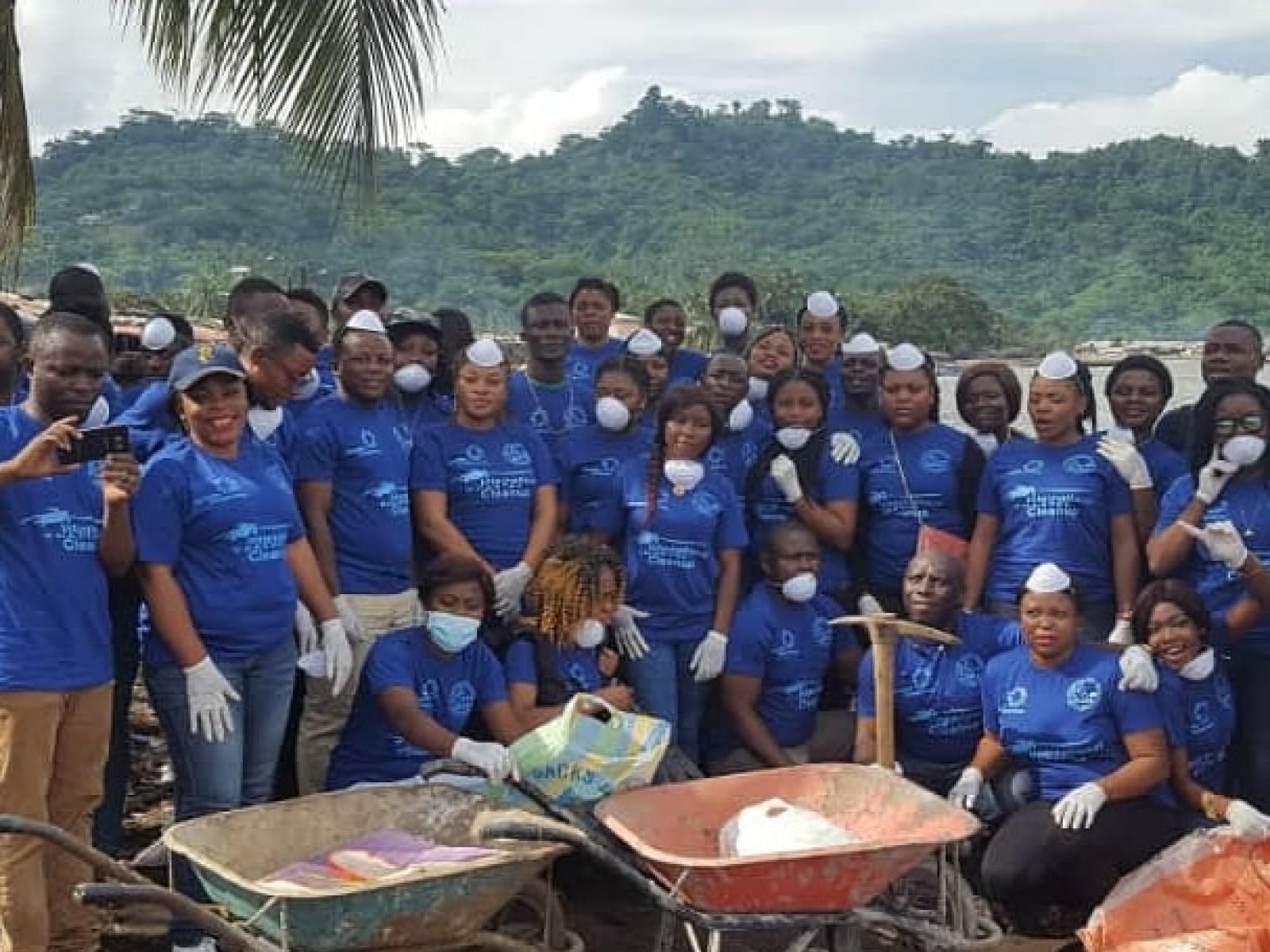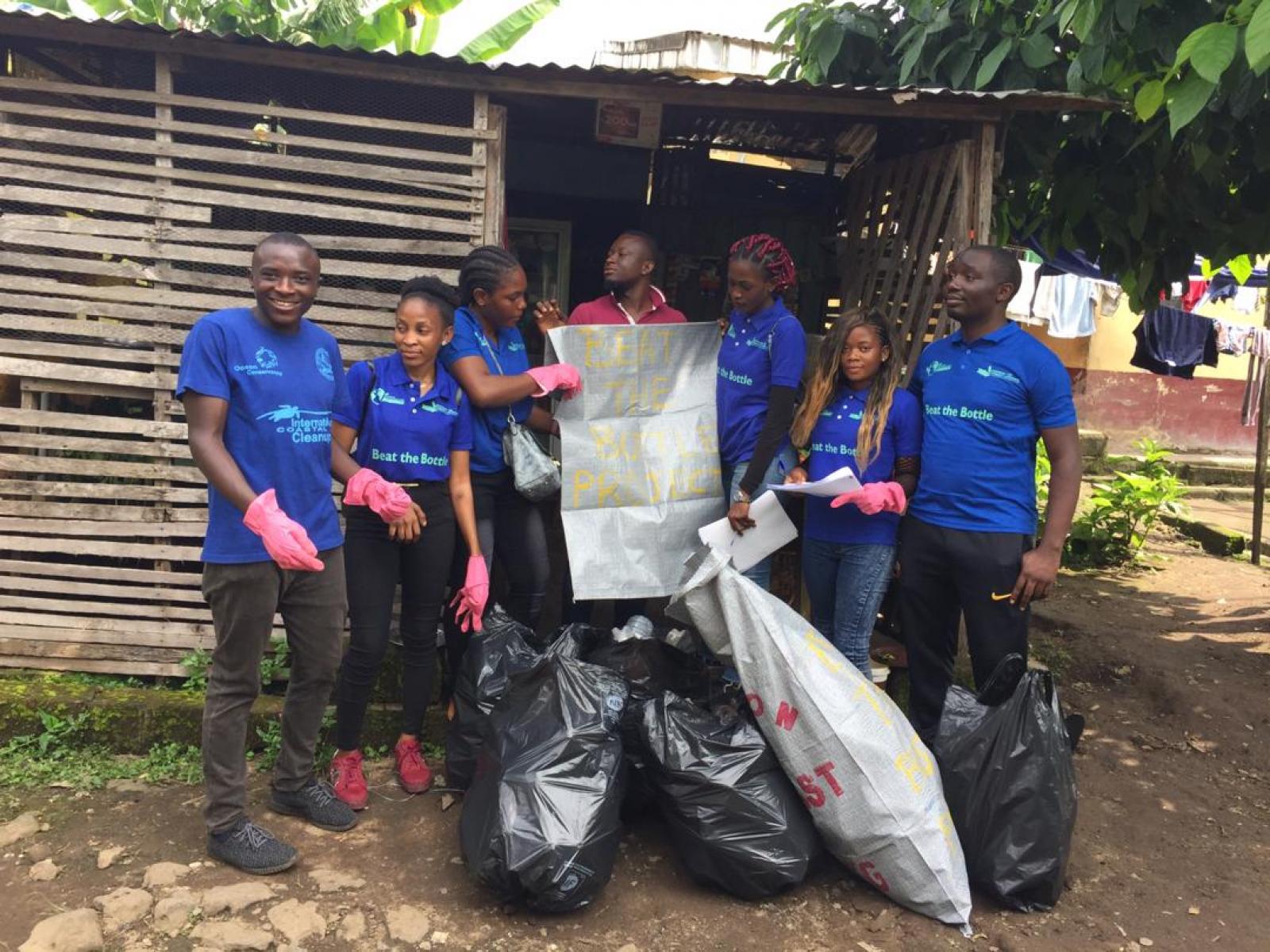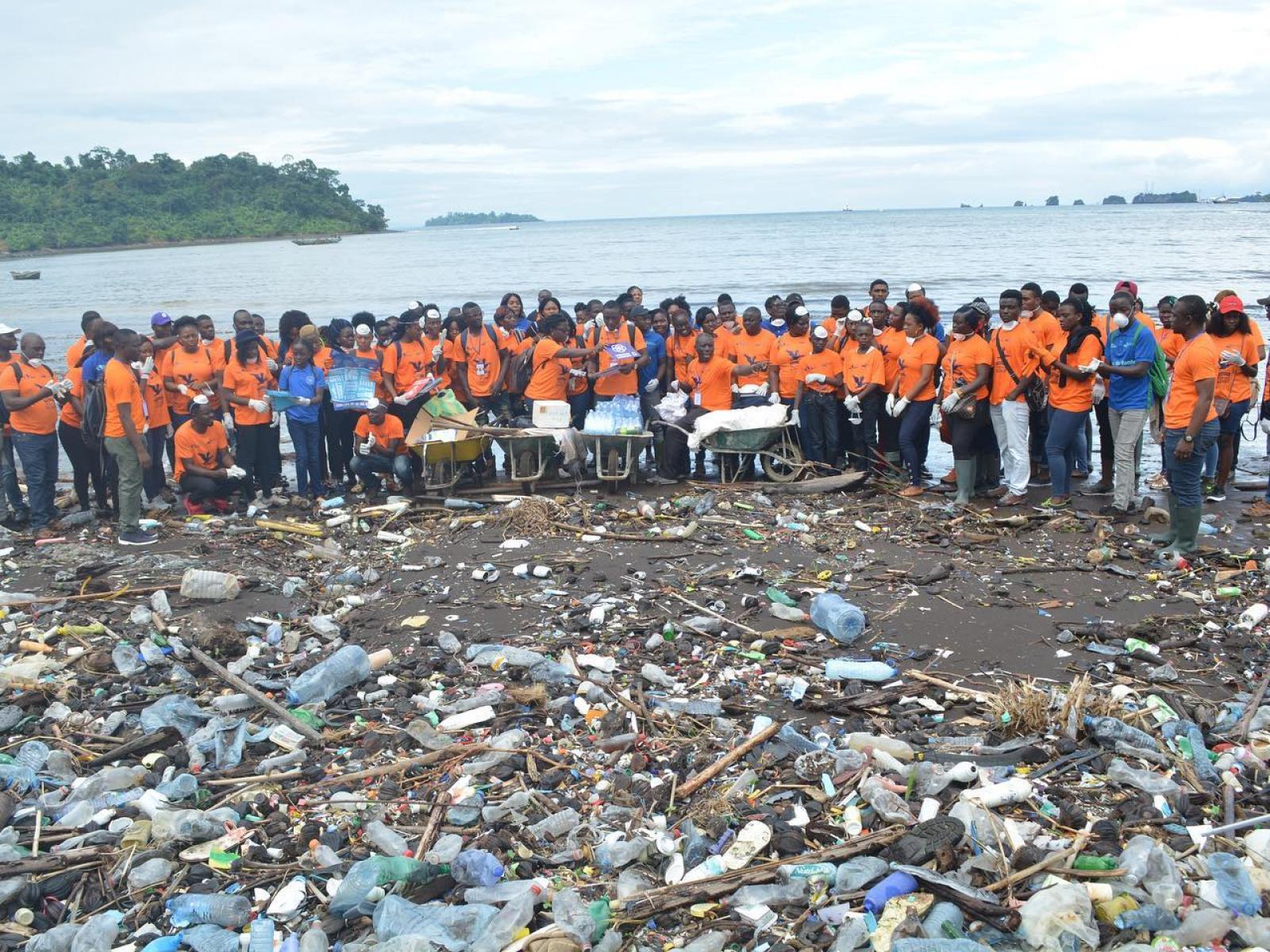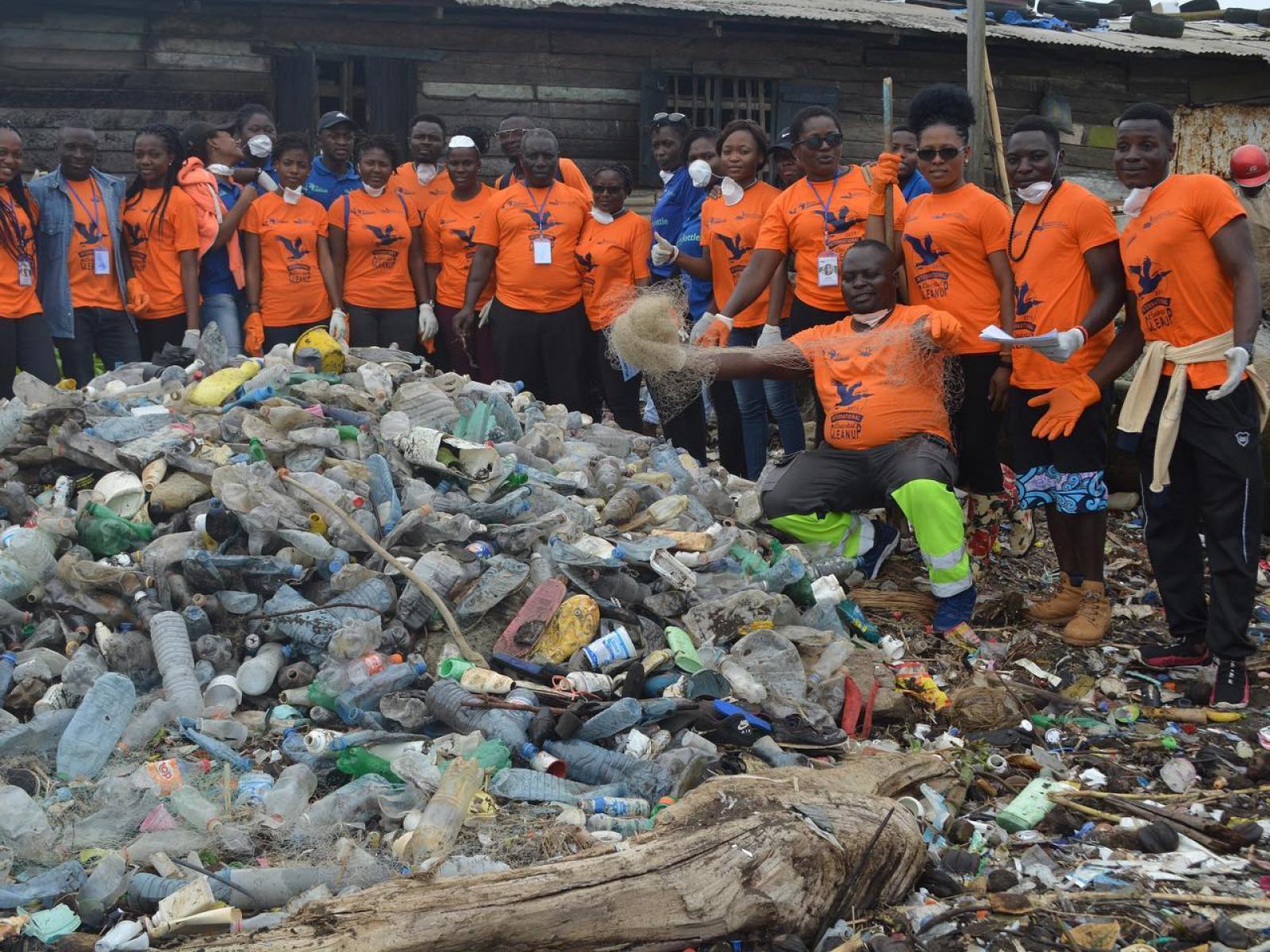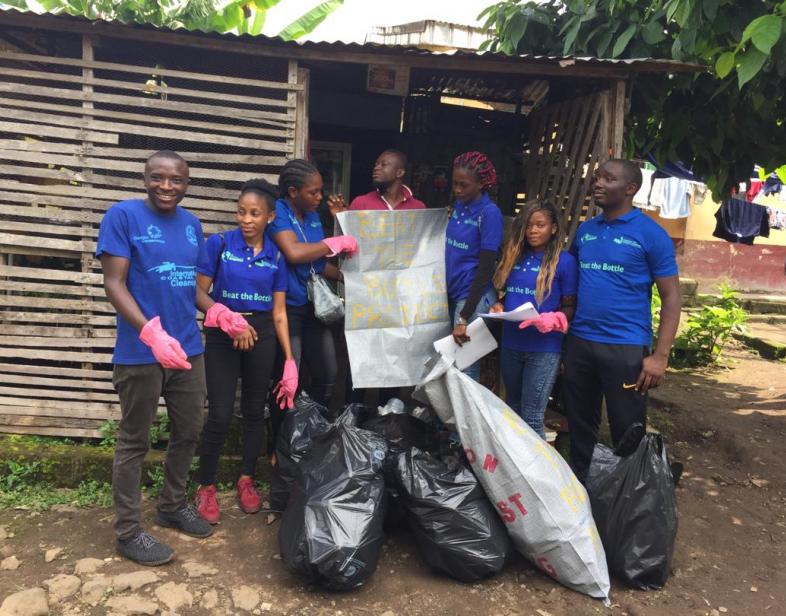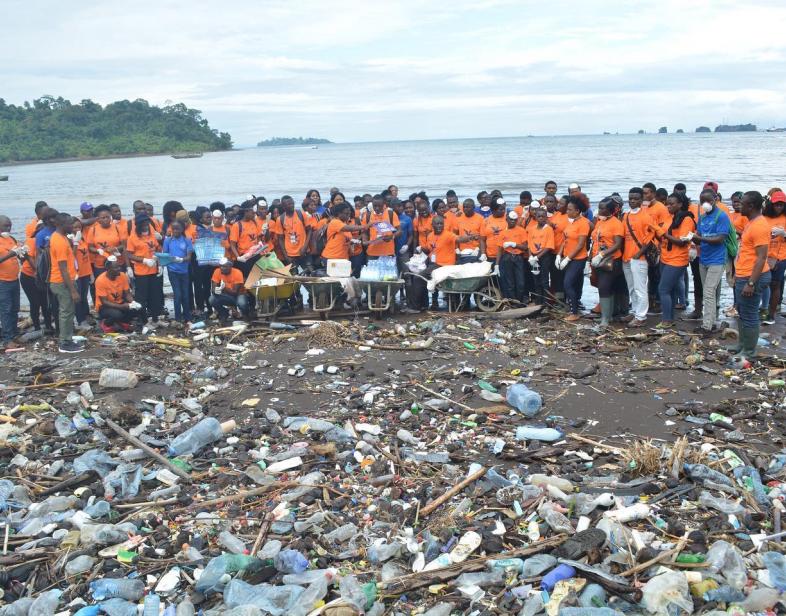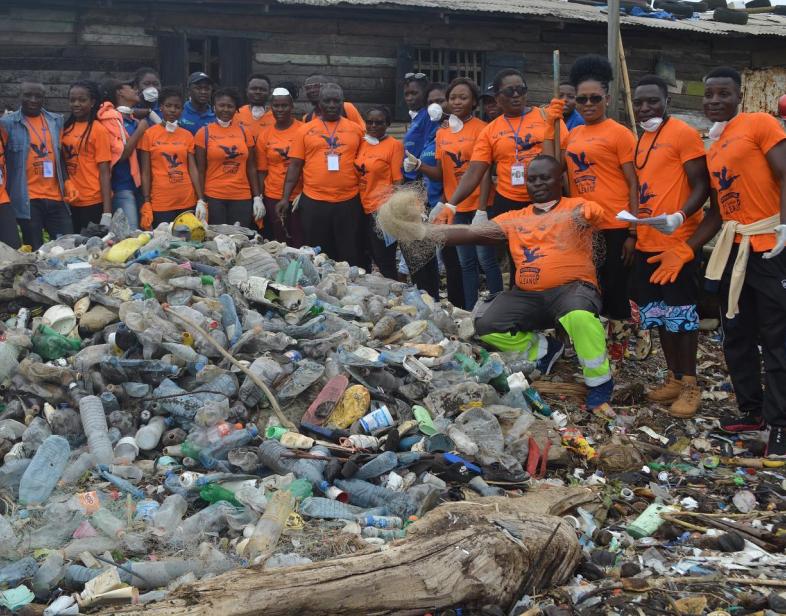An Overview Of Our Solution
A strong focus of the environmental protection efforts by ASCOA is to reduce plastic pollution and marine littering in the region. The Limbe Beach of south Cameroon, near Buea where ASCOA is based, faces a growing problem of pollution and waste mismanagement. Rubbish accumulates on the beach, discarded by visitors to the area and washed up from the ocean. Plastic pollution directly affects marine species and coral reefs. Microplastics are increasingly reported to be found in the fish and seafood consumed by humans. The accumulation of trash on the reefs and the beaches affects both tourism and fishing industries, as experienced by the communities near Limbe beach. ASCOA intends to carry out regular and effective activities to maintain Cameroon’s beaches clean and trash-free.
- Population Impacted: 300,000
- Continent: Africa
Prénom
Nom de famille
Type d'organisation
Courriel
Analyse du contexte
The main goal of the entire environmental project is to remove approximately 3000 tons of plastic waste. ASCOA aims to prevent trash from entering the waters by working with everyone from individuals to businesses to change the products, practices and behaviors that lead to ocean trash. ASCOA has successfully carried out beach clean-up activities in 2018 and twice in 2019. These activities were carried out in partnership with other civil society organisations and a local waste management company. Between 80 to 114 volunteers were trained and mobilised for these day-long events. In 2019, a total of 50 tons of rubbish was removed from Limbe beach on the clean-up days organised by ASCOA. ASCOA also seeks funding to deliver long-term solutions, among which is ad an installation of waste bins on the beach-front area and awareness campaigns to reduce littering in the long run.
Décrivez la solution technique que vous voudriez voir le public cible adopter.
Specific objectives of the project include: to reduce coastal trash pollution in Cameroon by 100% within the next 3 years; to facilitate Recycling of 100% of recyclable waste every year; to increase knowledge, attitudes, behaviours towards clean coastal and marine areas in Cameroon by 50% within 3 years; to improve knowledge management/sharing practices of the coastal environment by 80% in three years. The proposed activities include: beach clean-ups, provision and installation of trash cans throughout the beaches, development of online material to increase community sensitization for a clean environment, social media campaigns- using flyers, radio, posters, etc., engagement of waste-recycling companies to partner in waste recycling initiatives, annual regional sustainable ocean conferences will also be organized to enhance sharing innovative ideas around marine pollution and coastal refusals protection.
Décrivez votre intervention comportementale.
Every year ASCOA joins Ocean Conservancy and the international community to commemorate International Coastal Cleanup Day. In 2019, during the second phase of a cleanup, the number of civil society organisations increased following an online publication of the project and the request for more hands to help out. Three more civil society organisations came in – United Voices for Community Development (UVCD), Clean Cameroon and Africa United. 114 volunteers together with civil society organizations joined the clean up campaign to collect trash along 900 meters of the coastline. Alongside the beach clean-up, phase two incorporated an active social media campaign - using flyers, radio, posters. That all helped to collect more than 70 tonnes of plastic from our beaches. These sensitization programs spread awareness on the importance having a clean and pollution free coastline has on human health and environment and purpose of coastal cleanup.
Leviers comportementaux utilisés
Au besoin, veuillez expliquer comment vous avez utilisé le ou les leviers avec plus de détails.
The topic of plastic pollution already for a long time causes struggles to the population of Cameroon. Emerging and re-emerging diseases, including diarrhea and fevers, are seen to be the most significant health outcomes correlated with beach pollution. Malaria, zoonotic fish infections (that transmit to people), and plastic straws in the body of water fauna are some of the challenges reported in Cameroon. That is why emotional appeals is the best instrument that encourages a population for action such as coastal clean-ups.
Décrivez votre mise en œuvre.
In order to address Cameroon’s coastal pollution, ASCOA carried out its most recent two-phased beach pollution clean-up project in 2019 (first cleanup campaign was conducted in 2018). For phase one, on July 20th, 75 community members came together to collect 20 tons of trash along 500 meters of the coastline. For phase two, a similar activity was created on September 15th. This time, 114 members and civil society organizations joined the clean up campaign to collect 50 tons of trash along 900 meters of the coastline. Items retrieved include: coconut shells, plastic bottles, and food wrappers. Currently, ASCOA is the leading organization involved in addressing plastic pollution and marine littering in Cameroon. Beach cleanup activity encourages individuals to participate in clean-ups organised by ASCOA again and again and, from their own words, to perform other sustainable actions in their daily lives.
Décrivez le leadership de votre solution. Qui dirige la mise en œuvre?
Our leadership team involves members of local community of different ages and interests. Also a number of civil society organisations and INGOs are involved.
Principaux intervenants et partenaires du programme
The second International coastal clean-up day was organised in two phases, in July 2019 and in September 2019 thanks, in part, to a grant from the pollination project. The first phase of the project involved 75 volunteers, Ada of GEE, HYSCAM, the Fisherman Association of Limbe and the Divisional Delegation of the Ministry of the Environment and Protection of nature (MINEPDED), who’s efforts contributed to clearing 20 tons of plastic waste from the coastline of Limbe. During the second phase, as well as the previously mentioned organisations, United Voices for Community Development (UVCD), Clean Cameroon and Africa United also joined, while the number of volunteers increased to 114, meaning that it was possible to remove 50 tons of waste from the coastline thus creating a bigger educational as well as environmental impact on the local community.
Qui a adopté le(s) comportement(s) souhaité(s) et dans quelle mesure?
The second International coastal clean-up day was organised in two phases, in July 2019 and in September 2019 thanks, in part, to a grant from the pollination project. The first phase of the project involved 75 volunteers, Ada of GEE, HYSCAM, the Fisherman Association of Limbe and the Divisional Delegation of the Ministry of the Environment and Protection of nature (MINEPDED), who’s efforts contributed to clearing 20 tons of plastic waste from the coastline of Limbe. During the second phase, as well as the previously mentioned organisations, United Voices for Community Development (UVCD), Clean Cameroon and Africa United also joined, while the number of volunteers increased to 114, meaning that it was possible to remove 50 tons of waste from the coastline thus creating a bigger educational as well as environmental impact on the local community.
Quel a été votre impact sur la pollution de l'eau?
Besides the fact that together with volunteers we have collected 70 tons of plastic, we have raised community awareness regarding the trash utilisation and especially plastic. We believe that in future we will be able to cover more areas and make greater changes there as well.
Quel a été l'impact de votre solution sur les problèmes d'équité?
By clearing approximately 21km of coastline and ensuring it is both accessible and appealing to local and international tourists, additional economic value is expected to be brought to the area, ensuring an increase of an income and livelihood for the local community which preserves rather than harms the natural environment.
Quels étaient les avantages sociaux ou communautaires de votre solution?
The project educates the local community by both involving them directly in the clean-up events and the workshops. This provides a contact point for residents to discuss local issues with ASCOA volunteers but also with stakeholders and international speakers specialized in plastic pollution and conservation. The local community, together with local stakeholders, is expected to be involved further both in the monthly clearing process and in regular targeted workshops.
Quels ont été les co-bénéfices environnementaux de votre solution?
This project ensures that the coastline of is free of plastic waste. This, in turn, is essential in restoring the natural environment of the area and enhancing the value of the coastline.
Quels ont été les avantages connexes de votre solution par rapport au développement durable?
This project aims at removing plastic waste from the coastline, and by doing so, ensuring that nesting sites are cleared for birds to be able to nest in the mangrove forests and for marine turtles to be able to lay their eggs on the beach. As well as this, removing plastic waste contributes to increasing the fish stocks and fish diversity in the area, as many species are negatively affected by the presence of plastic.
Durabilité : Décrivez la durabilité économique de votre solution.
Economic sustainability of the solution relies on grant funding, support of donors and partners. The Pollination Project grant was indeed a buster to the project. The first phase of the project included 75 volunteers, two civil society organisations, (ASCOA and Ada of GEE), a local company specialised in urban cleaning (HYSACAM), the Fishermen association of down beach Limbe and the Divisional Delegation of the Ministry of Environment and Protection of Nature. During the second phase 3 more civil society organisations came in – United Voices for Community Development (UVCD), Clean Cameroon and Africa United.
Retour sur investissement : Combien a coûté la mise en œuvre de ces activités?
The total budget that was spend on a project is $890 for the coastal area of 5 km. However, our next project is planning to cover the coastal area of 21 km, which requires much more funds, efforts and support from various actors. We are also proud to say that our efforts were appreciated by the UN and ASCOA gained a special consultative status at the ECOSOC, where we continue to work on the resolvement of the environmental issues.
Comment pourrions-nous reproduire cette solution ailleurs avec succès?
We believe that with a necessary support of governments, civil society organisations, INGOs our solution to plastic pollution can be replicated elsewhere. Such organisations as ours are always glad to provide trainings and share our own experience with the others. Our next project is oriented on the organisation of environmental conference, where we aim on raising the awareness on environmental issues such as marine littering and others.
